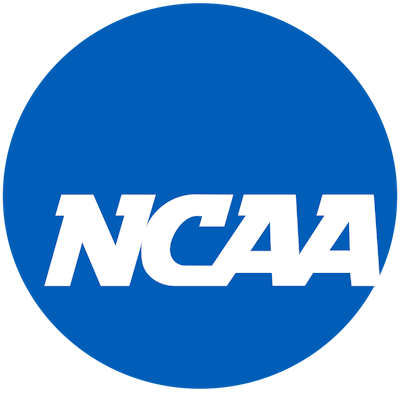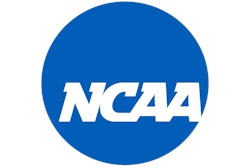
For all wagering-related violations reported on or after May 2, the following guidelines will apply:
- Student-athletes who engage in activities to influence the outcomes of their own games or knowingly provide information to individuals involved in sports betting activities will potentially face permanent loss of collegiate eligibility in all sports. This would also apply to student-athletes who wager on their own games or on other sports at their own schools.
- If a student-athlete wagers on their own sport at another school, education on sports wagering rules and prevention will be required as a condition of reinstatement, and the loss of 50% of one season of eligibility will be considered.
- For all other wagering-related violations (e.g., wagering on professional sports), cumulative dollar value of the wagers will be taken into consideration with the following terms for reinstatement:
- $200 or less: sports wagering rules and prevention education.
- $201-$500: loss of 10% of a season of eligibility, plus rules and prevention education.
- $501-$800: loss of 20% of a season of eligibility, plus rules and prevention education.
- Greater than $800: loss of 30% of a season of eligibility, plus rules and prevention education.
For cumulative wagering activities that greatly exceed $800, NCAA reinstatement staff are directed to consider whether additional loss of eligibility, including permanent ineligibility, are appropriate.
"These new guidelines modernize penalties for college athletes at a time when sports wagering has been legalized in dozens of states and is easily accessible nationwide with online betting platforms," said Alex Ricker-Gilbert, athletics director at Jacksonville and chair of the DI Legislative Committee. "While sports wagering by college athletes is still a concern — particularly as we remain committed to preserving the integrity of competition in college sports — consideration of mitigating factors is appropriate as staff prescribe penalties for young people who have made mistakes in this space."
Previous reinstatement guidelines, which were implemented prior to the broader legalization of sports wagering, stipulated that in most cases, student-athletes who wagered on sports at any level would lose one full season of collegiate eligibility.
The council directed the national office to continue to explore issues around rules education and integrity monitoring and requested additional updates on these topics.
Scholarships for transfers
In August 2022, the Division I Board adopted changes to transfer rules that require a school that awards a scholarship to a transfer to continue to provide that scholarship for the rest of that student-athlete's eligibility, unless they graduate, transfer again or leave for professional athletics opportunities.
The council this week adopted two modifications to those requirements. The first will allow transfers who opt not to participate in sports after a coaching change at their second school to continue to receive their scholarships without counting against team scholarship limits. The second modification exempts a school from being obligated to count the scholarship if the transferring student-athlete does not actually enroll at the school.
The council also introduced a proposal into the legislative cycle that, if approved, will continue to mandate that transfers who stop competing for nonathletics reasons receive scholarship funds until they graduate, transfer or pursue professional athletics opportunities. However, the proposed change would no longer count those individuals as part of a team's scholarship limits if they withdraw from the school, enabling athletics scholarship dollars to be reallocated to a currently participating student-athlete.
Transfer windows
The council introduced a proposal to reduce notification-of-transfer windows to 30 days, down from 60. Data from the past year indicate that most student-athletes enter the Transfer Portal at the beginning of the transfer window.
Now that the proposal has been formally introduced, respective oversight committees and the Division I Student Athlete Advisory Committee will gather additional feedback and offer potential amendments to the proposal over the summer. A final vote on the proposal will be considered by the council during its October meeting.
FBS Requirements
The Division I Council also introduced legislative proposals that would change membership requirements for Football Bowl Subdivision schools. The proposals introduced into the legislative cycle will be voted on by the council at a future meeting after membership feedback is considered.
If adopted, all FBS schools would be required to provide 90% of the total number of allowable scholarships over a two-year rolling period across at least 16 sports, including football. Schools also would be required to offer at least 210 scholarships each year, amounting to no less than $6 million in athletics scholarships offered.
These requirements would take effect Aug. 1, 2027, for existing FBS members and for schools already transitioning to FBS membership. Moving forward, for schools applying to transition to FBS beginning in 2024-25 and thereafter, the requirements would have to be met by the end of the two-year transition process.
If these requirements are adopted, previously existing requirements for football attendance at FBS schools would be removed, effective immediately.
"These requirements will directly benefit college athletes competing in Division I sports by requiring significant investment in scholarship opportunities," said Jon Steinbrecher, commissioner of the Mid-American Conference and vice chair of the Division I Council. "Over the past several years, the NCAA's collected data about spending at FBS schools indicate that these requirements are reasonable and attainable for the majority of impacted athletics programs."
The council also introduced new legislation that would increase the fee to transition from FCS to FBS from $5,000 to $5 million. If adopted, the change would be effective immediately for schools initiating the transition process from that point forward. The fee would be reassessed regularly.
Health and safety requirements
The council also approved two membership requirements focused on health and safety. The first will require all Division I schools to establish policies and procedures to empower athletics health care administrators with authority to oversee a school's athletics health care.
The second mandates that all Division I schools attest at least once every four years that they are completing a comprehensive review of the school's support services for mental and physical health, safety and athletics performance.
Initially recommended by the Division I Transformation Committee, the new requirements are intended to enhance student-athlete access to health and safety measures. In adopting the new requirements, the council noted that the NCAA national office should provide resources to assist schools with those reviews, as requested, but emphasized the need for local medical professionals to participate in decision-making at member schools.
The requirements take effect Aug. 1, 2024.
Other membership requirements
The council in April adopted a number of new requirements for student-athlete benefits, including the provision of career counseling and life skills programming.
The council this week adopted a requirement that all DI member schools will be required to attest that all coaches have completed required education and training in specified areas, effective Aug. 1, 2025.
The council also adopted additional requirements for rules compliance efforts. Each member school will be required to complete a compliance review — involving an authority outside the athletics department — at least once every four years and provide written confirmation of that review's completion to the NCAA national office. These reviews must consider, at minimum, compliance efforts that directly tie to compliance needs of college athletes.
Each school will be required annually to attest that the athletics director or a designated representative has reviewed NCAA rules with athletics department staff, as well as institutional staff outside of athletics whose roles intersect with the administration of college sports (e.g., registrar/admissions, financial aid).
These requirements are effective Aug. 1, 2024.




































